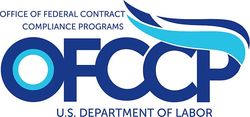By Brad Cave
The 2014 session of the Wyoming Legislature did not pass any significant employment legislation, but the Legislature’s actions on some of the measures it did consider could portend a much more interesting 2015 legislative session.
Independent Contractors. The issue of independent contractors garnered the most legislative attention of any employment issue in the 2014 session. In February, we reported on House Bill 16 which would have created misdemeanor criminal penalties for “knowingly failing to properly classify an individual as an employee” leading to a reduction in unemployment contributions or workers compensation premiums or benefits. (A companion measure, Senate File 112, was introduced in the Senate but failed to get sufficient votes for introduction.) This measure was sponsored by the Joint Corporations, Elections and Political Subdivisions Interim Committee. Although it failed to garner the two-thirds vote required for introduction during a budget session, a majority of the representatives in the House voted in favor introduction in the 32-26 vote. This bill may rear its ugly head again in the 2015 general session, where introduction requires only a majority vote.
On the bright side of the independent contractor issue, Senate File 96 proposed an amendment that would have relaxed the definition of independent contractor in the unemployment and workers compensation statutes. Those two identical definitions currently require that a person classified as an independent contractor meet three requirements:
- The person is free from control or direction over the details of the performance of services by contract and by fact;
- The person represents his services to the public as a self-employed individual or an independent contractor; and,
- The person may substitute another individual to perform his services.
These three factors have always been part of the commonly accepted definition of an independent contractor, as recognized by courts, other statutes and the Internal Revenue Service. But courts and the IRS weigh these and several other factors, without any single factor or group of factors controlling the determination. This approach permits employers to fashion independent contractor relationships under a variety of circumstances. Because of the “and” between the second and third factor, the Wyoming definition requires employers to meet all three of these factors, regardless of the other circumstances surrounding the independent contractor relationship. Add to that the fact that the second factor is wholly outside of the employer’s control, and you have a very strict and onerous definition.
Senate File 96 would have added a second test to the unemployment and workers compensation definitions to give employers two ways to prove independent contractor status. Under the second option, a person providing services would be properly classified as an independent contractor if the person:
- is free from control or direction, asserted directly by the person or entity contracting for the services, over the details of the performance of services by contract and by fact; and,
- has substantial investment used in connection with the performance of the services. The investment may include physical assets, financial assets, education, experience, intellectual property or any combination of these factors.
This proposed change would obviously open the door to a broader range of independent contractor relationships, and recognize the importance and prevalence of the sole proprietor independent contractor, particularly in technology services.
Senate File 96 passed the Senate with strong support, but the House defeated the measure by a vote of 54 to 6. Reasons for its demise may include timing – it was brought to the floor of the House on the last day for the entire House to consider new measures. Also, there may have been some confusion about whether the changes would be consistent with the IRS definitions of independent contractors and other statutory definitions. Because the House had little or no time to resolve these questions, the measure died. We encourage the Legislature to address this topic again next session.
Employer Access to Social Media Accounts. The surprise proposal of the session was Senate File 81, which would have put Wyoming on the bandwagon of other states which are restricting employer access to employees’ social media accounts. This proposal would have amended the Wyoming Fair Employment Practices Act to make it an unfair employment practice for employers to “request or require” any employee or applicant to disclose any username, password or other method of accessing personal social medial accounts. Social media accounts was broadly defined under the proposal, to include videos, images, blogs, podcasts, instant and text messages, email, internet websites or locations and other online services or accounts.
The measure included exceptions to the general restrictions for (1) access to employer social media accounts used for the employer’s business purposes; (2) when personal social media is reasonably believed to be relevant to an investigation of allegation of employee misconduct or violation of laws or regulations, if access is limited to the investigation or a related proceeding; (3) when conducting an investigation of an employee’s social media when required to comply with the requirements of state or federal law, or the rules of a self-regulating organization; or, (4) when an applicant applies for law enforcement employment.
Senate File 81 flew through the Senate with strong support, and started strong in the House, but was then defeated by a House vote of 36-16.
Our experience suggests that this is a solution in search of a problem. The huge majority of employers already avoid efforts to access employees’ social media because learning such information can cause all sorts of headaches for employers. In fact, employers usually learn about employees’ social media content when employees report to the employer some other employee’s bad behavior as described on social media, and usually expect the employer to do something about it. Although the exception for investigation-related access is helpful, even that language forces employers to couch their requests in terms that will simply raise the stakes of workplace situations.
Wyoming employers should pay attention next session to see if the Legislature takes up this topic.
Misconduct Disqualifications from Unemployment Benefits. Senate File 76 added a new definition of misconduct to the unemployment compensation statute to outline the circumstances under which a former employee may be disqualified from unemployment benefits. It was signed by Governor Mead on March 10, 2014, and will become effective on July 1, 2014.
The unemployment compensation statute already states that an employee will be disqualified from benefits if the Department of Workforce Services finds that the employee was discharged for “misconduct connected with his work” but does not define that phrase. To fill the gap, several years ago the Wyoming Supreme Court adopted a definition that required a showing of an act of the employee that indicated a disregard of the employer’s interests or the commonly accepted duties, obligations and responsibilities of an employee, to include carelessness or negligence of such a degree or recurrence as to reveal willful intent or intentional disregard of the employer’s interests or the employee’s duties and obligations. Violation of company policies or rules could qualify as misconduct under the court’s definition, provided the employee acted intentionally. The court’s definition also provided that inefficiency, failure of good performance due to incapacity or inability, ordinary negligence or good faith errors in judgment were not adequate to disqualify an employee.
The new definition of “misconduct connected with work” seems to adopt much of the Wyoming Supreme Court’s interpretation of the phrase. The phrase is now defined as “an act of an employee which indicates an intentional disregard of the employer’s interests or the commonly accepted duties, obligations and responsibilities of an employee.” The amendment also excludes from the definition of misconduct, (1) ordinary negligence in isolated instances; (2) good faith errors in judgment and discretion, and (3) inefficiency or failure in good performance as the result of inability or incapacity.
Because the new statutory definition is very similar to the definition the Supreme Court has used for years, we will need to see how the definition is applied by the Department and the courts to determine whether the misconduct standard has changed at all through this amendment.
Computer Trespass. Although not an employment measure, House Bill 178 created a new criminal offense that may give employers a new tool to help prevent employee sabotage. This measure, which passed both houses and was signed by Governor Mead, created the crime of computer trespass. A computer trespass occurs when a person knowingly and without authorization, with the intent to damage or cause the malfunction of a computer, system or network, sends malware, data or a program which alters, damages or causes the malfunction of the computer, system or network, or causes it to disseminate sensitive information.
The measure also created a civil remedy for computer trespass, and permits a person who suffers damage due to a trespass to sue the computer trespasser for damage to computers, systems, or networks, and the costs incurred because of the loss of use of those assets. The person brining the action can recover the damages caused by the trespass, as well as the costs incurred to identify the trespasser and to serve a complaint on the trespasser.
House Bill 178 was passed by both houses, and signed by Governor Mead on March 10, 2014. The new law will become effective on July 1, 2014.
This new law may be useful to employers if former or disgruntled employees attempt to misuse an employer’s computer systems. Employers should adopt and periodically review technology policies that carefully define when and how employees are authorized to use the employers’ computer, systems and networks. If an employee causes computer damage under questionable circumstances, such policies may help employers draw clear lines about when an employee’s access is unauthorized and pursue civil remedies under the statute.
And the Rest of the Pack. A few other employment measures never saw the light of day during the 2014 session. House Bill 45, which would have raised the minimum wage, and House Bill 57, which would have restricted employers’ ability to restrict the post-termination value of accrued vacation, both failed to get enough votes for introduction.
Bottom Line. The 2015 legislative session should be interesting, with the possible return of independent contractor and social media legislation. These are significant issues for Wyoming employers. We will keep you posted.
Click here to print/email/pdf this article.
 By John Husband and Brad Williams
By John Husband and Brad Williams  The “quickie” election rules have a tortured history. First proposed in June 2011, the rules faced immediate and severe criticism that led to a watered-down version of the rules being adopted in December 2011. These watered-down rules went briefly into effect in April 2012, but were quickly invalidated by a federal court just two weeks later. The court ruled that the Board had lacked a statutorily mandated quorum when it voted to adopt the rules.
The “quickie” election rules have a tortured history. First proposed in June 2011, the rules faced immediate and severe criticism that led to a watered-down version of the rules being adopted in December 2011. These watered-down rules went briefly into effect in April 2012, but were quickly invalidated by a federal court just two weeks later. The court ruled that the Board had lacked a statutorily mandated quorum when it voted to adopt the rules. 








